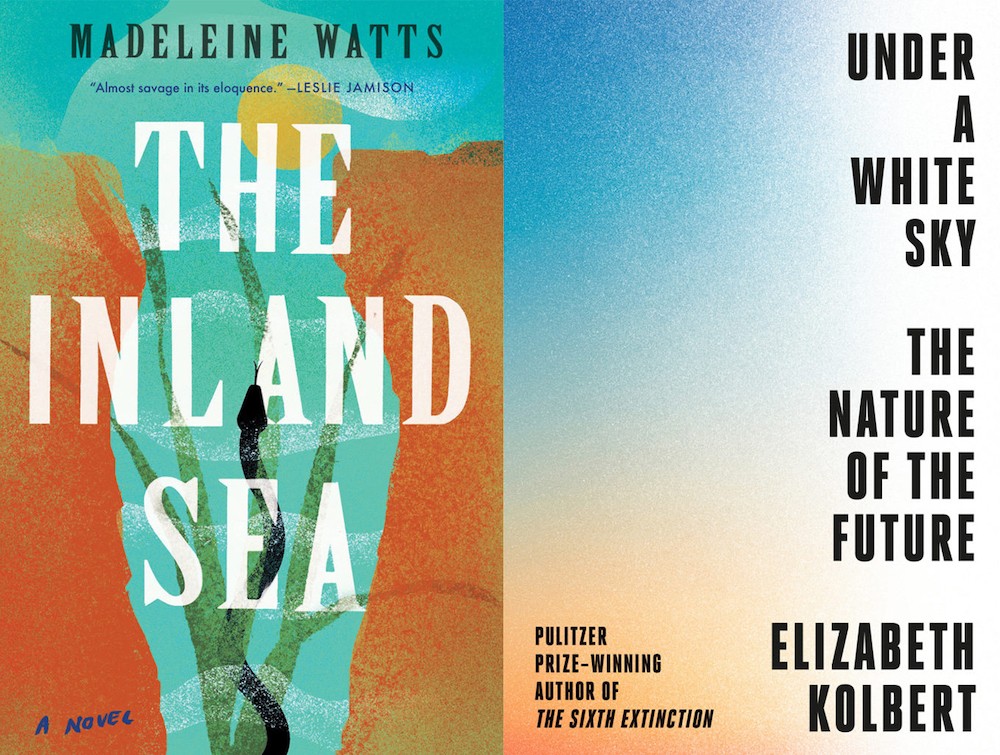On Climate Writing: Assistant Professor Leslie Jamison Interviews Alumna Madeleine Watts '19 and Author Elizabeth Kolbert
Assistant Professor Leslie Jamison moderated a discussion on climate writing as part of The Center for Fiction’s On America series. Jamison is the author of three nonfiction books—The Recovering, The Empathy Exams, and most recently, the essay collection Make it Scream, Make it Burn—as well as a novel, The Gin Closet. She is a contributing writer for the New York Times magazine.
The On America series brings writers, journalists, activists, and change-makers together to reflect on the critical issues of our times, asking questions such as who are we and who are we becoming as a nation, as well as parsing how the stories we tell shape us. In this installment of the On America series, Jamison was joined by Pulitzer Prize winner and New Yorker staff writer Elizabeth Kolbert and Writing Program Alumna Madeleine Watts ’19.
Kolbert has been a staff writer at The New Yorker since 1999. Her three-part series on global warming, “The Climate of Man,” won the 2006 National Magazine Award for Public Interest. She won the Pulitzer Prize for general nonfiction in 2015 for her book The Sixth Extinction. Her newest book, Under a White Sky: The Nature of the Future, reports on what is at stake as well as what is being done to effect change with regards to the climate crisis.
Watts grew up in Sydney, Australia and currently lives in New York. She has an MFA in creative writing from Columbia University, and her fiction has been published in the White Review and the Lifted Brow. Her novella, Afraid of Waking It was awarded the Griffith Review Novella Prize. Her nonfiction has appeared in the Believer, the Los Angeles Review of Books, and Literary Hub. The Inland Sea is her first novel.
“One of the challenges of writing about climate change is how to take this thing that is essentially on a larger scale than our minds can hold and how to make it a narrative that our minds can hold,” Jamison recently said in a book review for the Times. Yet, that is precisely what Kolbert’s and Watts’ books do so urgently in specific and contrasting ways. The authors read an excerpt from their new books to ground the audience in the specific language of each work. As Jamison noted, while Watts’ Inland Sea is a novel and Kolbert’s Under a White Sky is narrative journalism, both begin with animals in the water where they do not belong, a signpost of the change humans have wreaked on the planet’s climate. “The authors use these tangible, smaller-scale details and set pieces to bring us into crises of unimaginable scale,” Jamison said.
Jamison asked both authors to speak about how they find different forms of storytelling as a means of entering topics like the climate crisis, which are of such an incredible magnitude. “It’s a question that preoccupies journalists and anyone who writes about climate change,” Kolbert said. “How do you tell this story that’s everywhere and everything all at once? There’s a phrase in journalism and it applies to many different areas: that’s an issue, not a story. With climate change, that problem will always be with us...You could say it’s every story, but that is not really a solution.” In Kolbert’s own work, she uses different strategies ranging from writing profiles to spending extensive time in areas such as the arctic where the impacts of climate change are more visible in daily life. Kolbert also shared how she was struck by Watts’ approach in her novel, which resists being a climate change story, and, for Kolbert, becomes a story in which climate change works its way through in a compelling and essential way.
“It’s hard to tell a story [like this] in the way we’re taught to tell stories,” Watts said. “You’re taught to start from the one individual—the micro level—or a family, but you don’t get the whole scope of climate change from one individual or one family.” Watts’ novel, which is set in Australia, is structured by environmental catastrophes which ultimately build in intensity. “Everything that happens is linked in a particular way with how the narrator experiences her own sense of coming apart, of losing control...it becomes one in the same thing.” The narrator of The Inland Sea works at an emergency call center directing calls, which further informs the book’s relationship with intensity and urgency. “It means every time she experiences something through the phone, it is always at a peak of intensity...She gets neither the beginning of the story nor the end of the story. She just gets the intensity of that peak.” Watts used this narrative decision as a technique to bring in those elements of climate change, and furthermore, how it’s affecting Australia specifically, which Watts referred to as “ringing knell of what’s to come.”
You can purchase the writers’ books through The Center for Fiction, which supports their nonprofit-run indie bookstore, or your local bookstore. Check out The Center for Fiction for more of their upcoming events.
